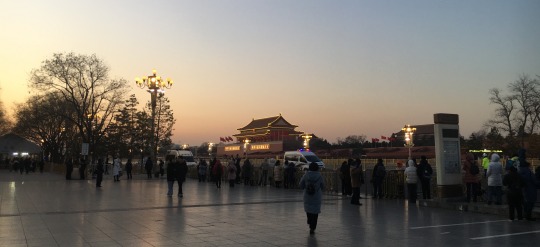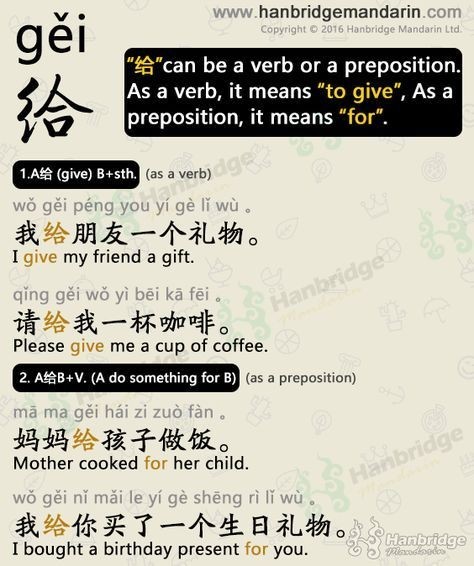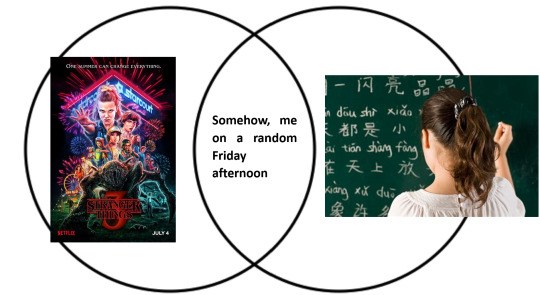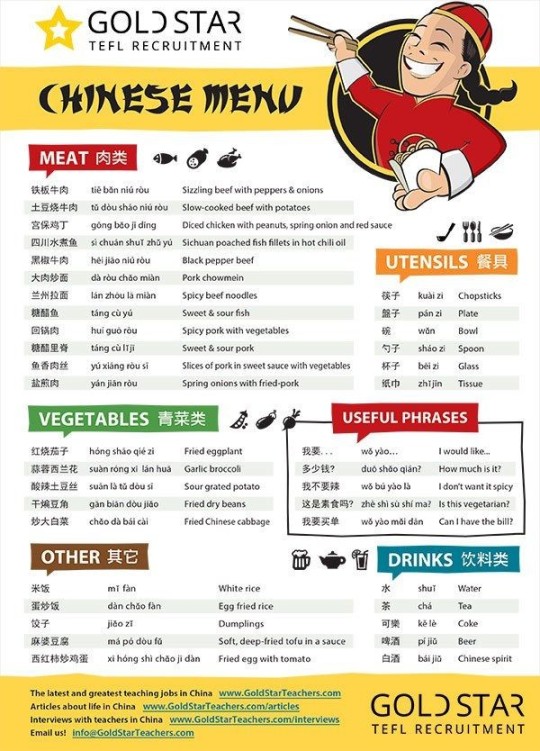#mandarin chinese vocabulary
Text
chinese art compliments/replies
as a follow up to my post on online drawing vocab, here is a collection of comments you can use to compliment others' art :-)
the basics
喜欢 [xǐhuān] - i like it
好好看 [hǎohǎo kàn] - looks good
厉害 [lìhài] - amazing
好漂亮/帥/美 [piàoliang/shuài/měi] - so pretty/handsome/beautiful
太有才了 [tài yǒu cáile] - so talented
(similarily, 画画天才 => drawing genius)
好神 [hǎo shén] - godly
神迹 [shén jī] - miraculous
仙品 [xiān pǐn] - high-quality product
好鮮活 [xiān huó] - vivid/lifelike
it’s cute
可爱晕了 [kě'ài yūnle] - so cute i fainted
可爱死了 [kě'ài sǐle] - so cute I died
可爱鼠了 [kě'ài shǔle] - so cute I died (in a cutesy/meme way)
卡瓦 [kǎ wǎ] - kawaii
好米 [hǎo mǐ] - so cute/beautiful
太萌了 [tài méngle] - so adorable (originating from japanese word moe - 萌え, lots of different meanings, but mostly refers to happiness you feel when you see something really cute), can be used like 萌到我了/被萌晕/心被萌化了
basically any XX死了/XX暈了/XX炸了 comment works
expletives
我去 [wǒ qù] - damn
卧槽/我草/wc [wò cāo] - censored vers of 我操 => oh fuck
牛逼 [niú bī] - (fucking) awesome, usually just use 牛
exclamatives
哇/哇塞 [wasāi] - wow
啊啊啊啊 - aaaaaa
哇啊啊啊 - wahhhh
responding to compliments
被老師跨了,能力暴增 [kuà...bào zēng] - (if responding to commenter who's also an artist) compliments from teacher make my ability surge
爱您主人 - love u op (主人 refers to original commenter), can also just use 愛你
嘿嘿谢谢喜欢 - hehe ty for liking
比心 [bǐ xīn]- finger heart
送愛 [sòng ài] - sending love
亲亲 [qīn qīn] - kiss kiss
questions
可以当头像吗 [tóuxiàng] - can I make it my pfp
可以自印吗 [zì yìn] - can I print it out
可以收集吗 [shōují] - can I save it
求原图 [qiú yuán tú] - original image pls
这么时候接稿 [jiē gǎo]- when will you open commissions
misc.
抱走/拿走 [bào/ná zǒu] - carrying/taking it away
蹲蹲 [dūn dūn] - if someone has posted a WIP, waiting (for the finished piece/shop listing), direct trans. = squatting
#chinese#mandarin#chinese language#studyblr#langblr#chinese langblr#mandarin langblr#chinese vocabulary#tunastudies
351 notes
·
View notes
Text
The 然's
突然,虽然,忽然. and the other 然's can often get mixed up, so here's a quick explanation of some of the most common ones!
突然 (Túrán): This means suddenly or unexpectedly
居然 (Jūrán): This kind of means suddenly, but more in the sense of "surprisingly" or to suggest disbelief at something that happened.
忽然 (Hūrán): This also means suddenly or unexpectedly, but it has a more stronger connotation.
既然 (Jìrán): This is a conjunction meaning "since" or "now that"
既然the weather is great, let's go out!
既然 you aren't busy, let's go watch a movie.
不然 (Bùrán): This means "otherwise" or "or else";
You should study, 不然 you won't do well on the exam.
虽然 (Suīrán): This means although or even though.
虽然 I'm not good at singing, I still like to go to the karaoke.
当然 (Dāngrán): 当然 means certainly or definitely and can be used as a reply:
Can you help me with A? 当然!
自然 (Zìrán): This can mean nature or naturally.
China's 自然 is very beautiful.
She speaks Chinese 得很自然.
仍然 (Réngrán): This can mean "still" or "yet".
I仍然 haven't read that book.
依然 (Yīrán): Similar to 仍然, this also means still" or "yet" but it's usually used in more formal and literary works, whereas 仍然 is more often used in spoken language.
果然 (Guǒrán): 果然 can be used to mean "indeed" or "as expected"
This movie is 果然 interesting.
竟然 (Jìngrán): This is an adverb used to suggest surprise or something unexpected.
He竟然forgot her birthday.
显然 (Xiǎnrán): This means "clearly" or "obviously".
This soup 显然 hot.
偶然 (Ǒur��n): This means "accidentally" or "by chance".
We 偶然 met at the same cafe.
How many other 然's do you know about? Drop a comment!
#slavic roots western mind#student life#student#study blog#college#college life#travel blog#aesthetic#studyblr#study motivation#chinese#china#study in china#life in china#learn chinese#chinese grammar#grammar#vocabulary#chinese vocabulary#chinese verbs#verbs#verb#chinese studyblr#mandarin langblr#mandarin#mandarin chinese#chinese language#language learning#chinese langblr#language resources
84 notes
·
View notes
Text
Chinese Time of Day Vocabulary
I’ve been keeping a list of words/characters related to times of day since last year. You probably know basic words like 早上, 上午, 晚上, etc. But there are so many other words and characters you may encounter in your language journey!
Note: this list isn’t meant to be complete.

Sunset (I think) by Tian’anmen Square about 3 years ago.
Dawn/early morning
天亮 tiānliàng - dawn / daybreak
日出 rìchū - sunrise
早 zǎo - early / morning / Good morning! / long ago / prematurely
一大早 yīdàzǎo - at dawn / at first light / first thing in the morning
早上 zǎoshang - early morning
旭 xù - dawn / rising sun
昕 xīn - dawn
晓 xiǎo - dawn / daybreak / to know / to let sb know / to make explicit
破晓 pòxiǎo - daybreak / dawn
晗 hán - before daybreak / dawn about to break
晞 xī - dawn / to dry in the sun
晨 chén - morning / dawn / daybreak
凌晨 língchén - very early in the morning / in the wee hours
早晨 zǎochén - early morning
晨曦 chénxī - first rays of morning sun / first glimmer of dawn
清晨 qīngchén - early morning
朝 zhāo - morning
朝阳 zhāoyáng - the morning sun
黎明 límíng - dawn / daybreak
The single characters above can be found in Chinese names. Some are quite common.
Daytime
午 wǔ - 7th earthly branch: 11 a.m.-1 p.m., noon
上午 shàngwǔ - morning
下午 xiàwǔ - afternoon
中午 zhōngwǔ - noon / midday
午前 wǔqián morning / a.m.
午后 wǔhòu - afternoon
昼 zhòu - daytime
白昼 báizhòu - daytime
白天 báitiān - daytime / during the day / day
白日 báirì - daytime / sun / time
Dusk/evening
晚 wǎn - evening / night / late
傍晚 bàngwǎn - in the evening / when night falls / towards evening / at night fall / at dusk
夕 xī - dusk / evening / Taiwan pr. xì
夕阳 xīyáng - sunset / the setting sun
天黑 tiānhēi - to get dark / dusk
日落 rìluò - sundown / sunset
暮 mù - evening / sunset
汐 xī - night tides / evening ebbtide / Taiwan pr. xì
霞 xiá - rose-tinted sky or clouds at sunrise or sunset
晚霞 wǎnxiá - sunset glow / sunset clouds / afterglow
彩霞 cǎixiá - clouds tinged with sunset hues
黄昏 huánghūn - dusk / evening / nightfall
Night
夜 yè - night
半夜 bànyè - midnight / in the middle of the night
夜晚 yèwǎn - night
夜深人静 yèshēnrénjìng - in the dead of night (idiom)
夜色 yèsè - night scene / the dim light of night
夜里 yèli - during the night / at night / nighttime
夜间 yèjiān - nighttime / evening or night
大半夜 dàbànyè - the middle of the night
深夜 shēnyè - very late at night
黑夜 hēiyè - night
宵 xiāo - night
晚间 wǎnjiān - evening / night
Now hopefully you have some more words to describe beautiful sunrises and sunsets and everything in between 🌄🌇
#chinese#mandarin#mandarin chinese#chinese language#vocab#vocab list#vocabulary#chinese vocab#mandarin vocab#langblr#studyblr#chinese langblr#chinese studyblr#mandarin langblr#mandarin studyblr#learn chinese#learning chinese#study chinese#studying chinese#learn mandarin#learning mandarin#study mandarin#studying mandarin#language learning#learning languages#language stuff#language study#language#languages
1K notes
·
View notes
Text
Speak DECENT CHINESE in 4 months - 8 easy tips
______
1. Have someone to guide you to get good pronunciation habits. It is almost impossible to re-learn bad habits later so make sure you get your pronunciation right from the beginning. I mean the pronunciation of the sounds, not the tones. Tones take more time to get used to and you can't rush it - but try the best you can. Some tutors don't bother too much about the pronunciation so make sure you find someone who is strict about that, you will be grateful later. Also get confident in pinyin, you will need it.
2. Understand the composition of the sentences. The word order is super easy and it stays the same all the time (the question and informative sentences have the same word order). I have a formula for the word order but I won't reveal it here, it is one of the secrets I keep for my students and people who use my materials.
3. Understand that there are no tenses in the sense we think about them in English and other languages. Learn to express future, potential future, finished action, change of state, experience in the past and circumstances of the event. See the difference between action verbs and verbs of state.
4. Learn to use modal verbs and conjuctions.
5. Build usable vocabulary based on the fact that everything in Chinese is interconnected.
6. Understand 就, 才,的 and 得
7. Don't learn grammar rules and words separately. Learn functional practical sentences that will serve you as examples of the grammar structures (then you just need to change the words in these sentences).
8. Develop your listening skills - that is very important. For that there are Youtube channels and podcasts on Spotify (and in my materials the audio part also plays an important role). You can listen to Chinese radio stations just to get the feeling of the language.
______
After 3-4 months you should feel pretty confident in normal conversations if you study regularly under competent guidance.
______
R-evolutionary learning materials and resources: https://linktr.ee/chineseffect
MAGIC PLAYBOOK for beginners
#learn chinese#learn mandarin#chinese langblr#mandarin langblr#edublr#mandarin#chinese#mandarin edublr#langblr#chinese vocabulary#mandarin chinese#chinese edublr#learning mandarin#learning chinese#study chinese#mandarin vocabulary#study mandarin#汉语#chinese studyblr#beginners chinese#chinese for beginners#learning tips#chinese tips#mandarin tips
245 notes
·
View notes
Text

Guys, I swear the source website of this picture had helped me out so much both when I started learning chinese and now!
Link:
I don't usually recommend pinterest to find useful websites but I did find this website there somehow lol. Istg half the links of pinterest are unavailable or something.
#langblr#chinese langblr#mandarin langblr#mandarinblr#chineselangblr#chinese vocab#mandarin vocab#chinese vocabulary#chinese language#chinese studyblr#mandarin vocabulary#mandarin chinese#mandarin studyblr#mandarin#learn chinese#study chinese#chinese study#learn mandarin#study mandarin#learning mandarin#studying mandarin#langblog#language learning#languageblr#learning languages#zhongwen
203 notes
·
View notes
Note
hi ash, i think i may have asked this before, but from one asian diaspora to another, i was wondering how, if you're able to, you keep up with your chinese practice in a country that's dominated by english (and/or french canadian since ik you live in canada). bc i know a lot of suggestions are like turning your tech to the language you want to learn, put sticky notes on objects with the name in the language you want to learn, etc. but like. i feel like it doesn't matter how much i try and practice bc i'm not in a class, so i don't get it consistently enough, and the rest of my day is filled with english bc, well, that's my first language, and what is needed for my job and every day living. do you have any recs, strategies, or tips? i'm getting desperate; i used to be so much better than i am now. thanks!
hi! honestly, most of my chinese upkeep since i stopped taking mandarin classes (which tbh was relatively recent; this april, and then i'll be taking a cantonese class next term so i can learn to read it) has been a lot less I Need To Practice My Chinese through exercises or dedicated study time, and more just making sure i have frequent exposure to the language that i'm also engaged in. which is a long way to say that basically c-media is how i'm maintaining my proficiency.
i listen to music, i watch dramas and variety shows, look up other vids on bilibili that catch my interest, sometimes read articles, and (very slowly) read fanfic, with pleco open to note new words. just generally scrolling through chinese social media has helped too. having that environment i can immerse myself in helps me learn new vocabulary and practice using what i already know + listening skills, but it also doesn't feel like work or study, just dealing with things i like and am interested in. (this is important for me because i'm so exhausted when i get home every day lmao, if language upkeep outside of class felt like additional Student Time i might have tapped out on attempting it. this way turning on a c-drama at the end of the day just seems like relaxation first and then chinese exposure on top of it).
just by poking through c-drama or fandom things, i know my vocabulary has definitely expanded since i finished my last class, instead of shrunk. even though i watch c-dramas with english subtitles (or chinese and english depending on the platform), i've still picked up stuff from them, and when it comes to things like variety shows i don't rely on subtitles anymore/make myself not. you absorb a lot more of a language than you think just through exposure, imo. although as a caveat for reading specifically, picking up new characters, recognizing them, and reading has been one of the easier parts of learning chinese for me, when it's probably the inverse for a lot of people. i don't know how well just casually reading things will work as a method for others, ymmv.
the thing that i struggle with is getting opportunities to practice speaking, because it's english in my classes and usually with my friends, and either english or cantonese with my family (and i'm not living with them right now). however, i do have a lot of diaspora friends given that i'm in vancouver, and we occasionally dip into speaking mandarin or cantonese. this isn't perfect, but hopefully in future i'll be able to get more speaking experience somehow. what's also helped me with keeping up pronunciation despite these limits is learning to sing chinese songs. singing is one of my hobbies anyway, so i'll use pinyin or jyutping as a guide (getting better at sightreading characters for singing though!) and it's helped me work on certain sounds i had trouble with, and improved my accent. (watching c-dramas even if i don't speak as often has also aided on that front tbh; i listened to recordings of myself from last year and i sound less canto when i speak mandarin now compared to back then, or even earlier this year).
if you want a place to start that i personally think has helped me maintain chinese proficiency, i would choose a variety show you're interested in and try watching it without english subtitles, when you've got free time and want to do something fun. most will have chinese ones you can use to practice reading along with listening, and people usually speak at a conversational enough level that it shouldn't be too difficult to follow along (for ref, after a year and a half of heritage learner mandarin classes at uni i could watch 《我们的歌》/Our Song without english subtitles and understand most of it). variety shows are also really accessible lmao, so many have full seasons on youtube.
tl;dr it's been media exposure for me all the way down since i left classes, wherever i can get it.
not sure how actually helpful all this rambling might be, but this is what i do to keep up my chinese proficiency and keep learning in daily life nowadays! hopefully maybe you or someone else will be able to get something out of it :)
#sorry anon i hope this all connects i'm answering this late at night oop#you can ask me clarifying stuff if you want tho!#also for those of you who see this and are still building up a basic vocabulary and language foundation/grammar#please do not feel bad or kick yourself that you can't just throw yourself into the deep end on bilibili and learn chinese that way#all this was targeted to answer a specific question and assumes some kind of existing proficiency#i believe in y'all to get there one day tho!!! 努力学习 加油吧#languages#mandarin#chinese#ashton answers#anon
24 notes
·
View notes
Text

today's vocabulary : 洗衣粉 [xǐ yī fěn]
#language#studyblr#langblr#chinese langblr#chinese studyblr#mandarin#learn mandarin#中文#汉语#chinese vocabulary#study chinese#chinese characters#mandarin chinese#studying chinese#china
24 notes
·
View notes
Text

STRANGER THINGS IN CHINESE -VOCAB LIST
so... i was bored and wanted to find some vocab list about stranger things in chinese but i couldn't find any... so I finally decided to go look for it myself on diverse chinese speaking websites who were talking about the show. I also used pleco for some more generic words usefull to speak about the show.
I hope some other people will also fit on my venn diagram of hyperfixation and find this list useful ^^
怪奇物語(guài qí wù yǔ)stranger things
颠倒世界(diān dǎo shì jiè)the upside down
夺心魔 (duó xīn mó)the mind flayer
魔狗 (mó gǒu) demodog
魔王 (mó wáng) demogorgon
魔蝙蝠 (mó biān fú) demobat
藤蔓 (téng wàn) the vines
怪兽 (guài shòu) the monster
维克那 (wéi kè nà) vecna
集体意识 (jí tǐ yì shí) the hive mind
火俱乐部 ( huǒ jù lè bù) the hellfire club
龙与地下城 (lóng yǔ dì xià chéng) dungeons and dragons
棒球棒 (bàng qiú bàng) baseball bat
圣诞灯 (shèng dàn dēng) christmas lights
纹身 (wén shēn) tattoo
失踪 (shī zōng) disappearance
杀 (shā) to kill
心灵感应 (xīn líng gǎn yīng) telekinesis
读心术 (dú xīn shù) telepathy
打电话 (dǎ diàn huà) to make a phone call
摩尔斯电码 (mó ěr sī diàn mǎ) morse code
对讲机 (duì jiǎng jī) walkie-talkie
俄国间谍 (é guó jiān dié) russian spy
实验品 (shí yàn pǐn) human experiment
星庭商场 (xīng tíng shāng cháng) starcourt mall
霍金斯实验室 ( huò jīn sī shí yàn shì) hawkins lab
门 (mén) the gate
#chinese langblr#chinese learning#stranger things#vocab list#chinese vocabulary#studyblr#mind flayer#demodog#demobats#demogorgon#vecna stranger things#the hellfire club#hawkins lab#joyce byers#will byers#eddie munson#steve harrington#eleven hopper#eleven stranger things#mike wheeler#dustin henderson#lucas sinclair#jim hopper#mandarin#language learning#中文#普通话#汉字#robin stranger things
7 notes
·
View notes
Text
Words with 定 (HSK3-5)
决定 (juédìng) : to decide
规定 (guīdìng) : regulations, to stipulate
肯定 (kěndìng) : assuredly, to affirm
固定 (gùdìng) : fixed, to fasten
确定 (quèdìng) : to ensure, to confirm
稳定 (wěndìng) : stable, to pacify
制定 (zhìdìng) : to formulate
否定 (fo3udìng) : to negate, to reject
生活的态度决定了我们幸福感的高低。
既然明天晚上公司会关灯停电,那么我们肯定不用加班了。
成语有固定的结构。
52 notes
·
View notes
Text

The confusing draft next to the organized sheet that will stay on my binder
I had some time at work, since it's a slow season, and took the opportunity to study some mandarin.
#picking up where i left off#studies#mandarin#chinese#mandarin chinese#ideogram#pin ying#studying#slow season#hobbies#fun afternoon#vocabulary#new vocab#duolingo#language#languages#drafts#draft#binder#studybrl#study motivation#study aesthetic#study blog#Spotify#汉语#langblr#lexie liu
12 notes
·
View notes
Text
art merch (商品) vocab
part 3 to chinese art vocabulary series; some common merch items and materials! (part 1: common terms) (part 2: compliments)
帖子 [tiězi] - stickers
明星片 [míngxīng piàn] - postcards
钥匙圈 [yàoshi quān] - keychains
和纸胶带 [hé zhǐ jiāodài] - washi tape
磁铁 [cítiě] - magnet
徽章 [huīzhāng] - badge
吧唧 [bāji] - badge (japanese)
立牌 [lì pái] - standee
气囊支架 [qìnáng zhījià] - popsocket
手机壳 [shǒujī ké] - phone case
桌历 [zhuō lì] - desk calendar
pp夹 [jiā] - binder clip (pp = polypropylene)
易拉宝 [yì lā bǎo] - roll-up banner
娃娃 [wáwá] - doll
麻将 [májiàng] - mahjong = acrylic blocks
出物 [chū wù] - selling goods
收物 [shōu wù] - looking for goods
materials/special items
压克力 [yà kè lì] - acrylic
透明 [tòumíng]- transparent
炫彩雷射 [xuàn cǎi léi shè] - holographic (dt: shiny color lasers)
夜光 [yèguāng] - glow in the dark
客制化 [kè zhì huà] - customized
摇摇乐钥 [yáo yáo lè yào] - shaker charms
糖果包 [tángguǒ bāo] - candy bag (keychains)
棒棒糖 [bàng bàng táng] - lollipop (charms)
卡套 [kǎ tào] - card protector/covers
票根 [piàogēn] - ticket stubs
厂子 [chǎngzi] - manufacturer/factory
15 notes
·
View notes
Text
I Verbs in Chinese
A guide to some common I verbs in Chinese~
Ignore - 忽视 - hūshì
Illuminate - 照亮- zhàoliàng
Imagine - 想象 - xiǎngxiàng
Imitate - 模仿 - mófǎng
Improve - 改善 - gǎishàn
Implement - 实施 - shíshī
Include - 包括 - bāokuò
Incorporate - 合并 - hébìng
Increase - 增加 - zēngjiā
Indulge - 沉迷 - chénmí
Inform - 通知 - tōngzhī
Innovate - 创新 - chuàngxīn
Initiate - 启动 - qǐdòng
Inquire - 询问 - xúnwèn
Inspire - 启发 - qǐfā
Instruct - 指示 - zhǐshì
Interact - 互动 - hùdòng
Interrupt - 打断 - dǎduàn
Intervene - 介入- jièrù
Introduce - 介绍 - jièshào
Investigate - 调查 - diàochá
Invite - 邀请 - yāoqǐng
Involve - 参与 - cānyù
Invent - 创造 - chuàngzào
Invest - 投资 - tóuzī
#chinese#learn chinese#mandarin langblr#chinese langblr#chinese language#college#college life#student life#studyblr#study blog#study motivation#travel blog#student#slavic roots western mind#chinese verbs#chinese vocabulary#verb#vocabulary#langblr#languages
135 notes
·
View notes
Text
New favorite word alert: 目送

Obviously this concept can be expressed in English, but I find it so cool that Chinese has a dedicated word for it. Now I will feel less awkward as I stare at my guests’ backs as they depart. It’s an integral part of being a host imo.
#pleco#this app is called pleco fyi (some ppl have asked)#chinese#chinese language#mandarin#mandarin chinese#language learning#langblr#learn chinese#learn mandarin#studyblr#chinese vocabulary
130 notes
·
View notes
Text

山很高,海很深 /shān hěn gāo, hǎi hěn shēn/
MOUNTAINS ARE HIGH, SEAS ARE DEEP
________
Beginner?
MAGIC PLAYBOOKS
Intermediate?
WORDPLAYS
FREE 12 DAY MANDARIN CHALLENGE
#chinese#mandarin#learn chinese#learn mandarin#chinese langblr#mandarin langblr#edublr#langblr#mandarin edublr#chinese vocabulary#mandarin chinese#chinese edublr#study chinese#learning chinese#learning mandarin#mandarin vocabulary#study mandarin#中文#汉语#chinese studyblr#mountain#mountains#sea#scenery#nature#daoism#dao
21 notes
·
View notes
Text



Mandarin Chinese restaurant vocabulary. I found much of the vocabulary these posts really useful for when I ordered food yesterday!
Sources of these pictures and other useful posts:
♤ ♡ ◇ ♧ ☆ ♤ ♡ ◇
#chinese langblr#langblr#mandarin langblr#mandarinblr#chinese vocab#mandarin vocab#learn chinese#study chinese#study mandarin#learn mandarin#mandarin#mandarin chinese#mandarin studyblr#mandarin vocabulary#learning mandarin#chinese#chinese language#chinese studyblr#chinese vocabulary#studying chinese#english to chinese#chinese learning#studying mandarin#langblog#language learning#languageblr#learning languages#study hard#studyblr
192 notes
·
View notes
Text

🎓 Learn Chinese Online | Learn Mandarin | Chinese Vocabularies
#learn chinese#mandarin#belajar bahasa mandarin#belajar bahasa mandarin pemula#belajar mandarin#chinese language#tumblr#education#language learning#learn chinese online#vocabulary learning#vocabulary#makeup
10 notes
·
View notes